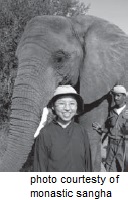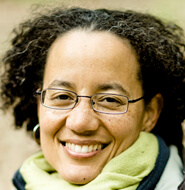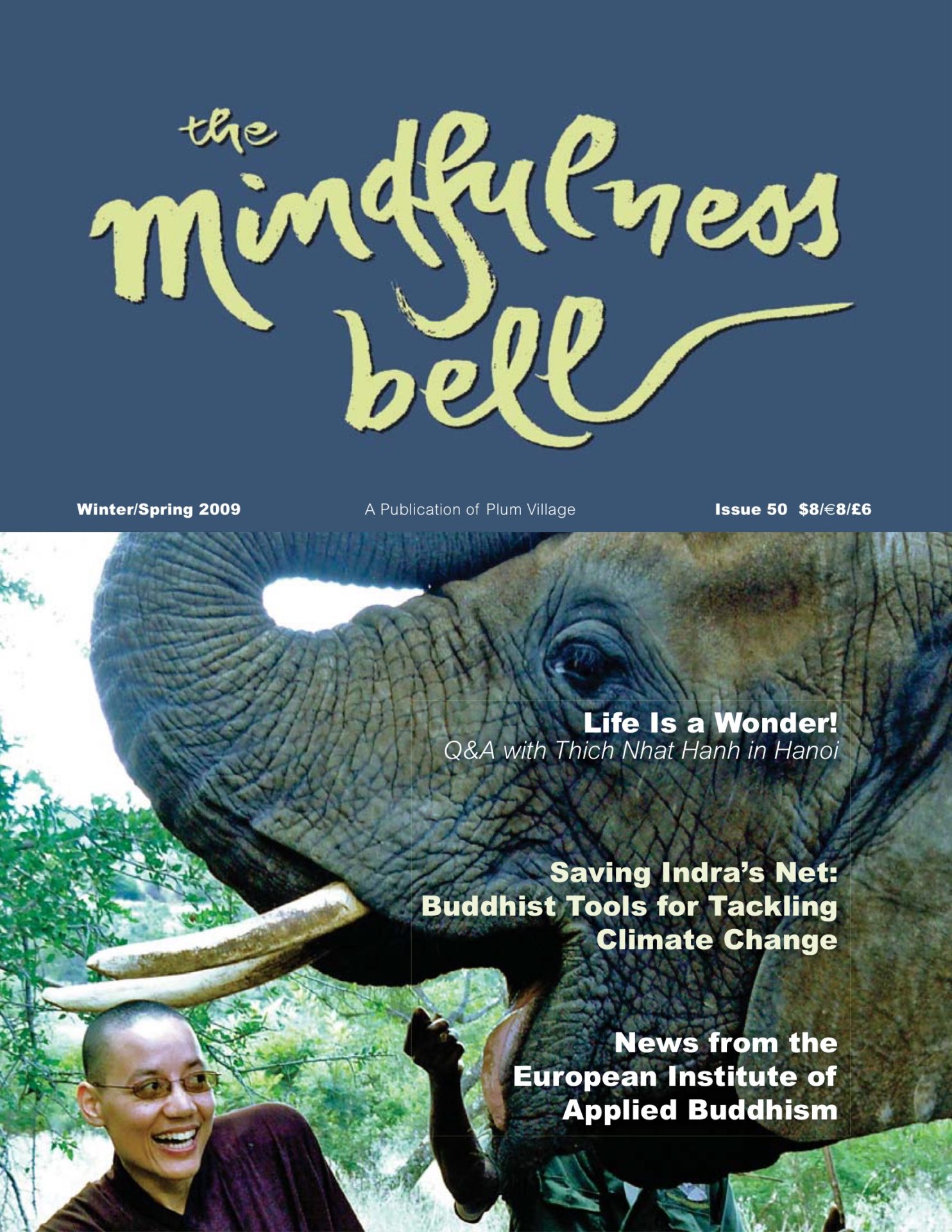By Sr. Thuan Nghiem and Sr. Chau Nghiem
By Kaira Jewel Lingo in February 2009
We held our retreat at the Cape Mountain Retreat Center, a two-hour drive from Cape Town. Thirty adults and eight children came and practiced for three days, many of them for the first time in our tradition. They were professionals, and most were white, though there were a few Indian South Africans,
By Sr. Thuan Nghiem and Sr. Chau Nghiem
By Kaira Jewel Lingo in February 2009
We held our retreat at the Cape Mountain Retreat Center, a two-hour drive from Cape Town. Thirty adults and eight children came and practiced for three days, many of them for the first time in our tradition. They were professionals, and most were white, though there were a few Indian South Africans, a Burmese woman, and a Xhosa boy, adopted by a white South African mom. The three Dharma Teachers took turns leading the adults’ activities as well as the children’s program.

We experienced very directly the painful residues of apartheid during the retreat. The retreat center was on land rented from a local farmer. On our way to the large meditation hall was a village of colored people* who worked for the white farmer. We met a number of colored children on our walks there who smiled at us with so much desire to connect. We invited the village children to the bonfire we had planned for Saturday night. They happily agreed to come. They were very poor and we heard there was always a lot of drinking in the village over the Easter holiday, so we wanted to provide them with a more wholesome atmosphere and give a chance for the village children and retreat children to enjoy playing together. When the retreat caretakers learned we’d invited the colored children, they informed the farmer and he insisted that the caretakers let the children know that they couldn’t attend the bonfire as there was a farm policy of no contact between retreatants and villagers. We were told that this policy was due to misunderstandings in the past between the Buddhist retreatants and largely Christian colored community, but we also knew it was quite common on South African farms to hold onto traditions of racial separation and inequality. The caretakers went to the village Saturday afternoon and told the children they were not allowed to come. They either didn’t get the message or disobeyed, because at dinnertime, fifteen or so very nicely dressed children came down to the bonfire. We went to greet them and begged the caretakers to let them join us. They were insistent that the farmer’s rules be followed as after all, we were on his land, and we wouldn’t be there to receive the fallout of our actions, either on the caretakers or the villagers. While we didn’t want to be intimidated, we wanted to be respectful of our hosts, but we felt extremely upset and helpless in the face of such blatant exclusion and discrimination. We continued with the bonfire, without the village children, but there was definitely something missing and the energy was dampened.
The next morning, before we transmitted the precepts, I asked everyone to join hands and requested that we send the merit of our transmission ceremony to the village children who had been excluded from the bonfire, to the retreat center caretakers and to the farmer. I asked that we use the merit of the ceremony to water the seed of inclusiveness in each of us and help us to find better ways to create connections with those that are different from us.
One beautiful thing happened after the kids’ Easter egg hunt: we invited the village children to share in the bounty of Easter eggs. We got to take pictures all together and enjoy their delight in the Easter eggs. There was a meeting at the end of the retreat in which we decided to draft a letter to the retreat center owners sharing about the painful experience we had and asking that action be taken to remedy this policy of separation. The letter has been delivered and the newly formed Cape Town Sangha is following up with the retreat owners.

* ‘Colored’ is the term used in South Africa for people of mixed Dutch and African ancestry. They speak Afrikaans and consider themselves distinct from both white and black South Africans.


